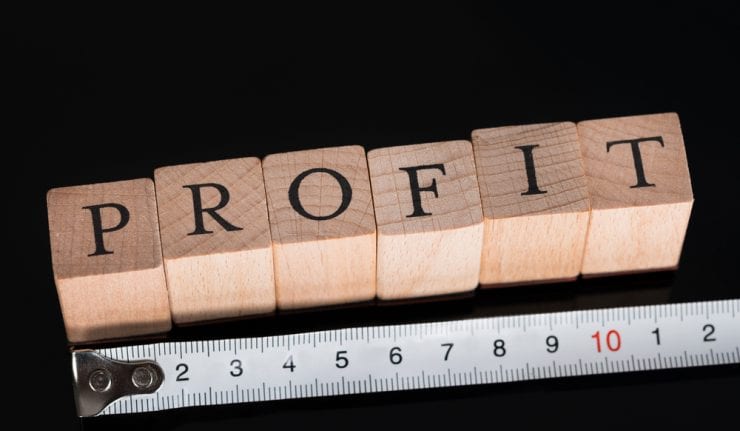[This week, I am featuring a classic issue of the Global Guru, originally published in 2015, that remains relevant today. I am taking a holiday break, but I’ll be back next week with a new edition of the Global Guru. Until then, I wish you a happy and prosperous New Year.]
The “critical counterintuitive” is one of the most compelling mental models I have ever come across.
It also is a model that you can readily apply to the world of investing.
The “critical counterintuitive” is “critical” because little else really matters. It is “counterintuitive” because the world works in ways almost exactly opposite to the way you think it does.
The “nice guys” who take the flowers-and-candy route rarely get the girl. The smartest kid in the class rarely becomes rich and famous. The class clowns often make it big.
Understanding how you can apply this mental model can spell the difference between your investment success — and utter disaster.
- Don’t Confuse Luck with Smarts
The role of luck in investment success is deceptively subtle.
You may think that investing $10,000 into one stock that makes you $1 million would be the best thing that could ever happen to you. But you’d be wrong.
Having enjoyed such phenomenal success, you’d suddenly think that you’d cracked the code of the markets. The next time around, you bet your house, your car and your life savings on another “can’t lose” investment. Maybe you’d win this time as well. You calculate that if you do it only one more time, you’d have $100 million in the bank.
Eventually, however, your luck runs out. Your last investment flops. And since you bet the farm, you not only lost your shirt, but also you’re deeply in debt.
You are worse off than when you started. Moreover, you also spend the rest of your life trying to replicate your first trade, telling yourself that you’ve learned your lesson. Only one more time, and then you’ll take all of your chips off of the table.
That’s the problem with sudden wealth, whether it comes from a big bet on a stock tip or buying a winning lottery ticket. Any Psychology 101 student can cite the study according to which almost all lottery winners end up poorer five years after they’ve won than beforehand.
As a wise man once said, “If you win a million dollars, you’d best become a millionaire. Because then you get to keep the money.”
The lesson? Understand that if you have ever won a big investment bet, you were at least as lucky as you were smart. But over the long term, there are no shortcuts. Making money on a consistent basis is a grind that is one part “insight” and nine parts “discipline.”
- Your Analysis Is Irrelevant to Your Investment Success
The philosopher Friedrich Nietzsche once observed that “any explanation is better than none.”
I disagree. Sometimes, in the investment world, no explanation is necessary — or relevant.
Today, we suffer from the paradox of information overload. If you have a smartphone in your pocket, you can access more information about the financial markets than the world’s top hedge funds did 20 years ago. Yet, I bet your investment returns have not improved one iota as a result.
Not only do we seem incapable of divining the future, but we also can’t even seem to agree on what happened. Was the credit crunch a result of Fed Chairman Alan Greenspan’s monetary policy, his successor Ben Bernanke’s incompetence or President Bill Clinton’s “affirmative action” for low-income borrowers? Or was it just a classic mania?
We crave explanations because they give us an illusion of control.
But it gets even worse.
Even those Cassandras who got their analysis “right” in predicting the credit crunch weren’t able to turn their accurate insights into money for their clients.
And truth be told, time hasn’t been kind to their predictions either.
Gold didn’t hit $5,000 an ounce. The U.S. dollar didn’t implode. Treasuries didn’t collapse. Analysts who promised to “crash-proof” their clients’ portfolios ended up losing more money for their clients than if they had stuck with simple index funds.
The lesson?
Successful investors are effective in the long term because they admit their mistakes.
As the world’s greatest speculator, George Soros, said, “My system doesn’t work by making valid predictions. It works by allowing me to recognize when I am wrong.”
- Your ‘Intelligence’ is Your Biggest Handicap
Warren Buffett famously observed that it takes no more than average intelligence to become a successful investor.
I believe that high intelligence is actually a handicap to successful investing.
Here’s why…
When you are smart, you are often 100% correct. You just can’t take the possibility of being wrong. So you stick to your guns, even when the market is telling you otherwise. That’s why over-educated Wall Street analysts make such lousy money managers. And it is why hedge-fund managers who flaunt their intelligence inevitably flounder.
Think about it this way…
If high intelligence were the key to successful investing, top business school professors and economists would be the wealthiest guys on the planet. Instead the Forbes 400 includes dropouts from places like Harvard University (Bill Gates) and Stamford University (the Google guys). None of them could have gotten a job on Wall Street, let alone taught at a top business school.
That’s also why poker players make the best traders and investors. They play each hand as it is dealt them. If they get a bad hand, they fold. They play the investment game the same way.
Perhaps that’s also why a former dean of Harvard College, Henry Rosovsky, observed about Harvard students, “Our A students become professors. Our B students go to law school. Our C students rule the world.”
After all, it was those C students who stayed up all night playing poker with Bill Gates.
Critically Counterintuitive Lessons
So how can you use these “critically counterintuitive” rules to improve your investment returns?
First, never bet too big on one idea. You may get lucky once. Maybe even twice. But your luck eventually will run out.
And if you bet the farm, you are out of the investment game for good.
Second, don’t delude yourself into thinking that you have unique insight into the market. Bring that attitude to your investments, and you will have your head handed to you. And it’s not a question of “if” but “when.”
Third, learn to think of your investments like a hand in a poker game. Up the ante when you are lucky enough to get a good hand.
But also be prepared to fold — and to fold often.
But above all, take the advice of a sagacious trader who once said, ” Some people are born smart. Some people are born lucky. Some people are smart enough to be born lucky.”
Here’s hoping that you were born lucky!
In case you missed it, I encourage you to read my e-letter column from last week about the possibility of a 20% stock market rise in 2017.
P.S. Right now, 14 of 16 stock positions are in positive territory in my Alpha Algorithm trading service (along with an options play that’s up 70%). You can find out how my portfolio works — and what’s in store for 2017 — by following this link.




